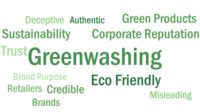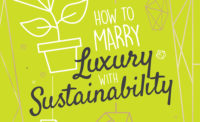LRQA: Global Brands Urged to Deliver on Sustainable Packaging Claims

After the European Union (EU) introduced new regulations on packaging and packaging waste, global companies are now facing more scrutiny when it comes to delivering on their sustainability claims, according to global assurance provider LRQA.
In 2022, many global brands made negative headlines after failing to deliver on sustainability pledges, as it was found that 64% of food signatories actually increased their virgin plastic packaging, resulting in a 4% increase for the sector, per The Ellen MacArthur Foundation and the United Nations Environment Programme. These staggering figures have many calling on companies to place a premium on getting third-party verification for the measurement of their sustainability efforts.
In order to crack down on the use of virgin plastics and environmentally harmful packaging processes, the recent EU Packaging Directive has included amendments that include further emphasizing waste prevention and reuse obligations for EU countries, raising recycling targets on packaging waste, and implementing mandatory Extended Producer Responsibility (EPR) schemes.
“These changes mean it’s even more important that organizations can demonstrate how they have delivered on promises with independently verified data. Reputations are at stake, so it’s in businesses’ best interests to put verification at the top of their agenda,” said Kimberly Coffin, Supply Chain Assurance Specialist at LRQA. “We’ve seen from last year that words are not enough, with negative headlines resulting in a damaging shift in consumer attitudes. It has therefore never been more crucial that claims are backed up with data and appropriate solutions are identified to plug the gaps.”
A lack of flexible packaging and appropriate infrastructure, in addition to insufficient knowledge and resourcing, have served as the main barriers for companies when it comes to delivering on sustainability promises, according to a survey of industry leaders.
“In the current economic climate, facing these barriers to meet plastic reduction relies heavily on identification of alternative materials and/or suppliers,” continued Coffin. “Regardless of the action taken, it’s crucial to understand the risk impact of change, and this relies heavily on sound supply chain awareness. Through third party audits and assessment, businesses can identify and address gaps in process and policy, to prove to consumers and investors that products and services are environmentally and ethically sound.”
“Despite good intentions, there appears to be a gap between what brands are committing to and what is being achieved, suggesting that existing self-verification processes do not get far enough. Consumer trust drives business success, however, negative media coverage caused by uncovering unsustainable practices or human rights violations could be detrimental to brand reputation. Because of this, it’s in businesses’ best interests to put verification at the top of their agenda and third party assessment must be prioritised to build trust.”
To learn more about LRQA and third-party verification, please visit https://www.lrqa.com/.
Looking for a reprint of this article?
From high-res PDFs to custom plaques, order your copy today!







